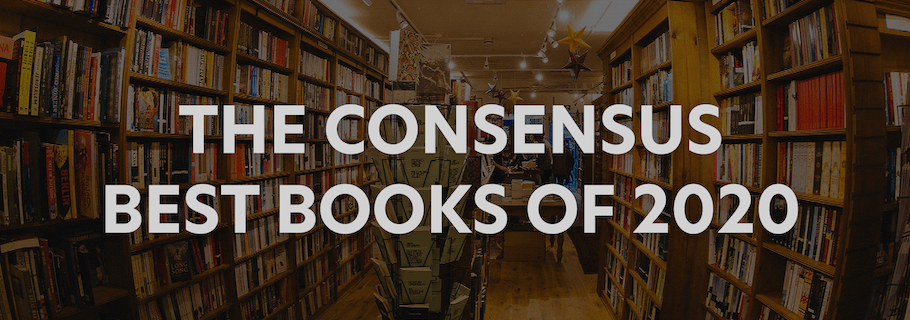Over the past couple of weeks the blogs and sites I read have been humming with list after list of the top books of 2020. It seems that just about every avid reader I follow is eager to share his or her picks for the year that was. I love these lists and especially love comparing them to see which books become the consensus favorites. With that in mind, and based on perhaps 20 or 25 such lists, I analyzed them and narrowed it down to just a few books that received a lot of attention.
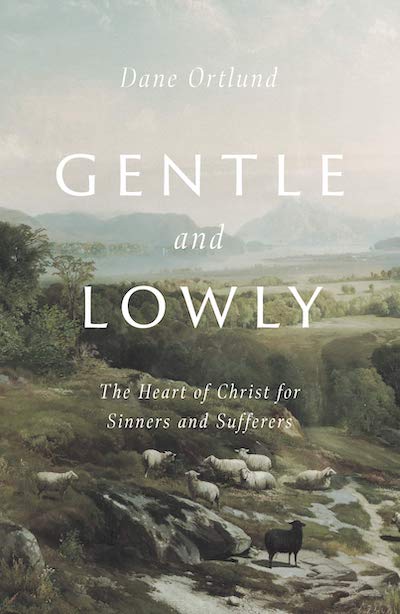 Gentle and Lowly: The Heart of Christ for Sinners and Sufferers by Dane Ortlund. There’s no doubt as to the consensus favorite for books published in 2020: Gentle and Lowly. It was WORLD magazine’s Accessible Theology book of the year and TGC’s Popular Theology book of the year. Andrew Wilson says “It is a stunning book, packed with beautiful truths expressed poignantly and applied wisely, and I cannot recommend it highly enough” while Kristen Wetherell says, “I’m on my second reading of Gentle and Lowly and highly, highly recommend it to you. Amid a difficult season of much weariness, Jesus knew I would need the reminder that he delights to save and strengthen his people.” I added it to my top ten as well and said, “Gentle and Lowly is a sweet and comforting book that will grow your knowledge, provoke your worship, and inspire your devotion. Best of all, it will help you to know, love, and trust our God and Savior, Jesus Christ.” (Buy it from Amazon or Westminster Books)
Gentle and Lowly: The Heart of Christ for Sinners and Sufferers by Dane Ortlund. There’s no doubt as to the consensus favorite for books published in 2020: Gentle and Lowly. It was WORLD magazine’s Accessible Theology book of the year and TGC’s Popular Theology book of the year. Andrew Wilson says “It is a stunning book, packed with beautiful truths expressed poignantly and applied wisely, and I cannot recommend it highly enough” while Kristen Wetherell says, “I’m on my second reading of Gentle and Lowly and highly, highly recommend it to you. Amid a difficult season of much weariness, Jesus knew I would need the reminder that he delights to save and strengthen his people.” I added it to my top ten as well and said, “Gentle and Lowly is a sweet and comforting book that will grow your knowledge, provoke your worship, and inspire your devotion. Best of all, it will help you to know, love, and trust our God and Savior, Jesus Christ.” (Buy it from Amazon or Westminster Books)
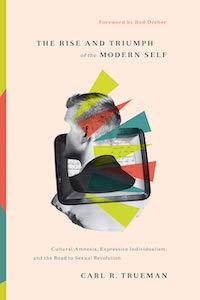 The Rise And Triumph of the Modern Self: Cultural Amnesia, Expressive Individualism and the Road to Sexual Revolution by Carl Trueman. Second only to Gentle and Lowly is Carl Trueman’s masterpiece The Rise And Triumph of the Modern Self. This book couldn’t be thematically more different from Ortlund’s—a long and focused look at modern culture and its evolving understanding of self. Kevin DeYoung says, “Trueman has produced a dense (400 pages), but well-written and remarkably insightful, book that helps us understand why ‘I am a woman trapped in a man’s body’ came to be seen as coherent and meaningful.” For the Church made it their book of the year and said, “Trueman’s work is an essential read for those who seek to understand our times and the philosophical, theological, psychological, and sociological forces that have shaped them.” I also ranked it at the very top and said, “this is not only the most important book I read in 2020, but also the best. I can’t recommend it too highly.” (Buy it from Amazon or Westminster Books)
The Rise And Triumph of the Modern Self: Cultural Amnesia, Expressive Individualism and the Road to Sexual Revolution by Carl Trueman. Second only to Gentle and Lowly is Carl Trueman’s masterpiece The Rise And Triumph of the Modern Self. This book couldn’t be thematically more different from Ortlund’s—a long and focused look at modern culture and its evolving understanding of self. Kevin DeYoung says, “Trueman has produced a dense (400 pages), but well-written and remarkably insightful, book that helps us understand why ‘I am a woman trapped in a man’s body’ came to be seen as coherent and meaningful.” For the Church made it their book of the year and said, “Trueman’s work is an essential read for those who seek to understand our times and the philosophical, theological, psychological, and sociological forces that have shaped them.” I also ranked it at the very top and said, “this is not only the most important book I read in 2020, but also the best. I can’t recommend it too highly.” (Buy it from Amazon or Westminster Books)
Those two books were standout favorites, receiving far more mentions than any others. Yet there were a few more that showed up a number of times, so I’ll consider them honorable mentions:
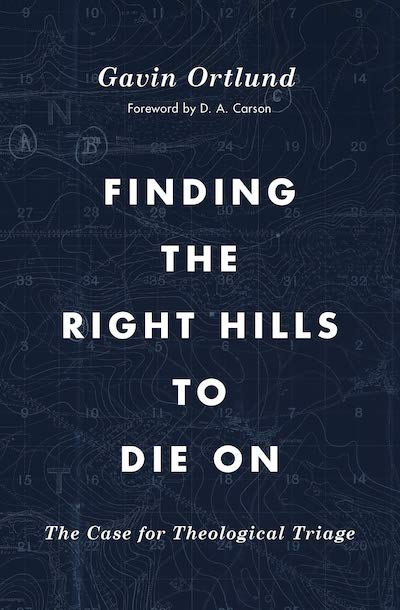 Finding the Right Hills to Die On: The Case for Theological Triage by Gavin Ortlund. This is a book about how to discerningly separate crucial “gospel” issues from lesser matters and, in that way, to know when and how to maintain unity within the local church and the global church. After all, while some hills are worth dying on, others are not. It’s crucial to our mission to be able to distinguish between the two. Darryl Dash made it one of his top picks saying, “You may be familiar with the concept of theological triage. Ortlund helps us think through how to apply this concept in our ministries. Ortlund is always insightful, and the topic couldn’t be more timely.” I also read and appreciated it. (Buy it from Amazon or Westminster Books)
Finding the Right Hills to Die On: The Case for Theological Triage by Gavin Ortlund. This is a book about how to discerningly separate crucial “gospel” issues from lesser matters and, in that way, to know when and how to maintain unity within the local church and the global church. After all, while some hills are worth dying on, others are not. It’s crucial to our mission to be able to distinguish between the two. Darryl Dash made it one of his top picks saying, “You may be familiar with the concept of theological triage. Ortlund helps us think through how to apply this concept in our ministries. Ortlund is always insightful, and the topic couldn’t be more timely.” I also read and appreciated it. (Buy it from Amazon or Westminster Books)
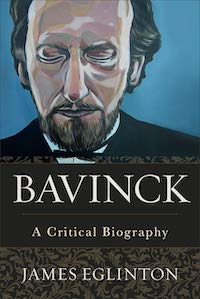 Bavink: A Critical Biography by James Eglinton. This biography of a lesser-known but extremely important theologian gained many plaudits from many different sources. Kevin DeYoung described it as “an astute and readable biography of a man who not only excelled as a theologian but also made his name as an ethicist, an educational reformer, a politician, a journalist, a Bible translator, a campaigner for women’s education, and the progenitor of heroes and martyrs in the anti-Nazi resistance movement.” A number of others praised it as a thorough, readable biography of a figure who deserves to be known. (Buy it from Amazon or Westminster Books)
Bavink: A Critical Biography by James Eglinton. This biography of a lesser-known but extremely important theologian gained many plaudits from many different sources. Kevin DeYoung described it as “an astute and readable biography of a man who not only excelled as a theologian but also made his name as an ethicist, an educational reformer, a politician, a journalist, a Bible translator, a campaigner for women’s education, and the progenitor of heroes and martyrs in the anti-Nazi resistance movement.” A number of others praised it as a thorough, readable biography of a figure who deserves to be known. (Buy it from Amazon or Westminster Books)
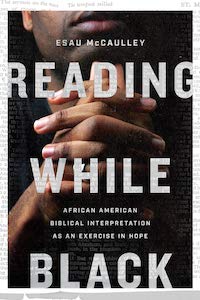 Reading While Black: African American Biblical Interpretation as an Exercise in Hope by Esau McCaulley. For the Church said this book is “an essential read for pastors and leaders seeking to address the racial tensions of the age from a biblical standpoint. McCaulley opens the conversation into multiple avenues of cultural inquiry, but grounds the answers to the questions asked by the culture in the Word of God.” Trevin Wax agreed: “This book is a terrific contribution to ongoing conversations about biblical interpretation in diverse contexts, the legacy of the black church tradition, and the importance of looking to Scripture above all for wisdom and insight on some of today’s cultural concerns.” (Buy it at Amazon)
Reading While Black: African American Biblical Interpretation as an Exercise in Hope by Esau McCaulley. For the Church said this book is “an essential read for pastors and leaders seeking to address the racial tensions of the age from a biblical standpoint. McCaulley opens the conversation into multiple avenues of cultural inquiry, but grounds the answers to the questions asked by the culture in the Word of God.” Trevin Wax agreed: “This book is a terrific contribution to ongoing conversations about biblical interpretation in diverse contexts, the legacy of the black church tradition, and the importance of looking to Scripture above all for wisdom and insight on some of today’s cultural concerns.” (Buy it at Amazon)
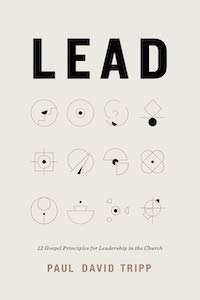 Lead: 12 Gospel Principles for Leadership in the Church by Paul David Tripp. This book is structured around 12 “gospel principles” meant to address the contemporary crisis of leadership within the church. David Steele, who reviews more books than anyone I know, commended it in this way: “The author writes as a churchman, a pastor, a theologian, and a biblical counselor. But he also writes as a fellow-pilgrim. He never throws ‘punches’ from the cheap seats. Dr. Tripp is quick to admit his own weaknesses, hidden motivations, and sin. He along with all people desperately needs the gospel.” (Buy it from Amazon or Westminster Books)
Lead: 12 Gospel Principles for Leadership in the Church by Paul David Tripp. This book is structured around 12 “gospel principles” meant to address the contemporary crisis of leadership within the church. David Steele, who reviews more books than anyone I know, commended it in this way: “The author writes as a churchman, a pastor, a theologian, and a biblical counselor. But he also writes as a fellow-pilgrim. He never throws ‘punches’ from the cheap seats. Dr. Tripp is quick to admit his own weaknesses, hidden motivations, and sin. He along with all people desperately needs the gospel.” (Buy it from Amazon or Westminster Books)
